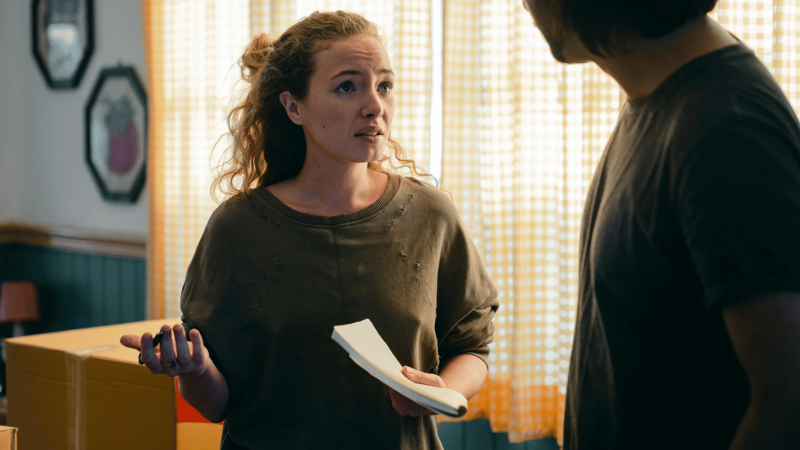After you get engaged, there's a period of combined bliss and stress while in the midst of planning for your wedding day. However, the light at the end of the tunnel is that those emotions are followed by the romance and relaxation of your honeymoon.
During this time, when you’re freshly married and enjoying each other’s company, whether on a vacation or not, it’s easy to be lost in the happy bubble of a honeymoon phase or honeymoon period and not discuss critical issues of compatibility for long-term marital success. Thus, you're unable to see past it to your reality together.
Couples who don't work through these issues before marriage often end up separating:
1. How to get along after a disagreement
 Antoni Shkraba / Pexels
Antoni Shkraba / Pexels
It’s important to realize that your life together isn’t always going to be sunshine and rainbows. People disagree and get into arguments.
The important thing is to not let your disagreements or arguments infiltrate your day-to-day life. You should also learn to understand one another’s pain points so you can know why your spouse is so angry on a personal level.
Once you have that deeper understanding, you can work through those issues and come to an actual resolution. This will also help to prevent anger from persisting so you can work toward that honeymoon-level happiness.
2. How to create a mutual budget
 Ron Lach / Pexels
Ron Lach / Pexels
Nothing puts a damper on the honeymoon vibe quite like discussing your finances. This is a true pain point for many relationships because, let’s face it, combining two different backgrounds is hard enough.
Relationship expert Dr. Margaret Paul found that successful couples learn to manage their money together. She urged couples to "mutually decide on their budget, and then both stick to it."
Paul continued, "Successful couples make sure that they not only earn enough to support themselves, but they learn how to manage their money in ways that do not create stress for themselves or their partner. They decide mutually if both of them will work or not."
However, adding money into the mix makes things even harder. If you and your spouse have two different views on your finances and how you budget, you must reach a resolution that you can both live with.
Decide what your mutual monetary goals are, how much you need to spend on essentials, what you want to put aside, and for what reason. Once you have this conversation and a plan is mapped out, you can both breathe easier and work toward those goals together.
3. How to share chores and responsibilities
 Ketut Subiyanto / Pexels
Ketut Subiyanto / Pexels
To avoid ruining the honeymoon period after the end of your honeymoon, a conversation needs to take place about domestic expectations. Unfortunately, there are still societal expectations about a vast majority of the domestic responsibilities falling upon the wife.
You need to know what each of you expects out of the other when it comes to these responsibilities and have an honest conversation about splitting chores without it becoming a fight.
After having this talk, you can hold each other accountable for what was discussed. The important part is that you do so without hostility, as that can lead to resentment that will keep you from that honeymoon-like feeling.
4. How to continuously learn about each other
 Yan Krukau / Pexels
Yan Krukau / Pexels
A marriage is a lifelong journey that adapts as time goes on. Who you are, individually, will change throughout that journey — and that's not a bad thing.
While you may think that you and your spouse know everything about each other, you’re both still growing as people — the experiences you’ll continue to have will cause changes that your spouse will learn about and vice versa.
It primarily falls under the field of social psychology, focusing on concepts like self-disclosure, relationship development, attachment theory, and the ongoing process of building intimacy and understanding within interpersonal relationships, particularly in long-term partnerships.
Key findings include the importance of continuous communication, active listening, and adapting to changes in one another over time to maintain healthy connections.
Research published by the American Psychological Association (APA) identifies distinct phases in relationship development, like the initial attraction, exploration, and commitment stages, each requiring different levels of self-disclosure and understanding.
Again, this is not a bad thing. It means that you’ll be continually surprising one another and keeping that feeling of dating alive, which is extremely important in extending the honeymoon period.
5. How to talk about finances
 Ketut Subiyanto / Pexels
Ketut Subiyanto / Pexels
One of the life events that will mirror the bliss and stress you felt while planning your wedding is when you decide it’s time to become a homeowner.
This is also why it’s important to talk about finances. You’ll want to take the time to formulate a budget. This will help you avoid any unpleasant surprises in the home-buying process, like finding out you’re below the minimum credit score to buy a house.
Being rejected in this process will put any marriage through the wringer. Remember: there are good surprises and bad surprises in marriage. Don’t let your decision to buy a home reveal one of the bad ones.
6. Agreeing on how many kids you both want, if any
 Anastasiya Gepp / Pexels
Anastasiya Gepp / Pexels
Deciding that you want to have kids is a bigger deal than many people realize. There will be a shift in your relationship when it happens, so it’s best to be as prepared as possible.
The best time to discuss having children with a partner is early on in the relationship when you are both comfortable and already talking about your plans and family dynamics.
This allows you to identify whether your partner aligns with your desires for parenthood and avoid potential dealbreakers later.
Research published by the Institute for Family Studies found that while there's no single best time, it's generally considered better to address the topic sooner rather than later, especially if you are serious about a long-term relationship.
Much like many other areas, you and your spouse may have different opinions here that need to be worked through before moving forward.
Among the questions you might want to address include:
- When would this ideally happen for us?
- Can we, realistically, afford to have kids?
- How many kids do we each want?
- What would this mean for our relationship?
- What options should we consider if issues are conceiving?
- Are there family names you would like our child to have?
- What type of childcare would we have?
- Do we have a support system?
- Will one of us stay home? How will we make up for that loss of income?
7. How to create a work-life balance that works for both of you
 Rahul Shah / Pexels
Rahul Shah / Pexels
You and your spouse aren’t meant to be together 100 percent of the time. It's essential to both of your sanity that you each create some life balance early on in your marriage.
Clinical Psychologist Dr. Michael W. Regier discussed how the happiest couples keep their marriage running smoothly. Dr. Regier recommended committing to cultivating an emotional connection, remembering not to forget the fun, and always protecting your relationship.
And there's no need for perfection, Regier advised. "[There's no need to] 'perfect' yourself before getting into a love relationship. Quite the contrary. If you're in a healthy relationship, your personal growth should continue within the context of your relationship.
Many of us who subscribe to the tenets of attachment science believe that we become our best selves in the arms of another."
By having both of you do this, one person won’t be waiting on the other and you’ll each have your activities to occupy your time. This can be as simple as sticking to one night a week where you go out with your friends alone or taking up a hobby that you can have all to yourself.
By having your things, you’re giving yourselves something to talk about when you are together and cherishing that time even more.
8. How to make meaningful time for one another
 Leah Newhouse / Pexels
Leah Newhouse / Pexels
While it’s a good idea to have your activities and interests, you don’t want to live completely separate lives and have no time for each other. Dedicating time to spending with others, particularly in close relationships, is crucial for building and maintaining strong connections.
A 2022 study showed that the quality of time spent together is often more important than the quantity. That consistent interaction is key to fostering closeness and positive emotional well-being.
This is frequently referred to as the relationship investment model, where time is considered a valuable resource for investing in relationships.
Factors like busy schedules, work demands, and family obligations can often hinder prioritizing time for relationships, making intentional effort necessary. If you have to, schedule your time together with dedicated date nights or times when you both stay in.
Having this time for just the two of you allows you to reconnect in all possible ways and keeps your passion for one another, and thus the honeymoon period, alive and well.
Don't lose that loving feeling of the honeymoon phase! Many couples come to relationship therapy because they’ve lost "that loving feeling."
Taking on some of these conversations and remaining aware of your relationship needs will help you, move forward, and have a stronger marriage so you can keep that honeymoon feeling alive.
Mary Kay Cocharo is a licensed marriage and family therapist in a private practice in West Los Angeles, California.




